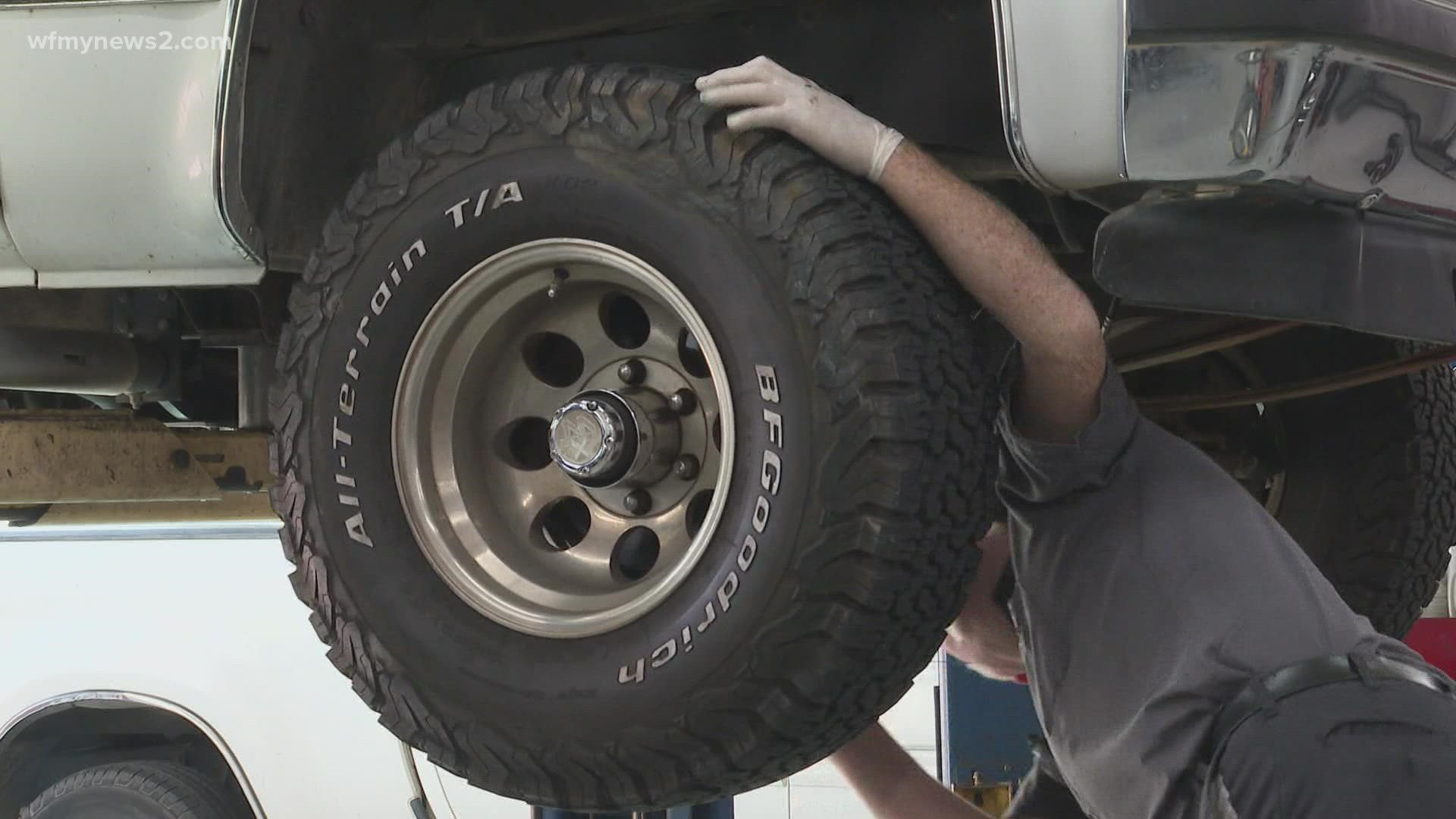GREENSBORO, N.C. — Do these cold mornings leave you feeling a bit 'deflated?'
Yes, it's the seasonal shift -- often accompanied by changes in mood. And, the VERIFY team has heard from several viewers, who say this cold weather is leaving their tires feeling low, too.
THE QUESTION
Is it true cold air can deflate a tire?
THE SOURCES
- Cynthia Roy - certified auto technician, Roy's Automotives owner
- Christian Morgan - WFMY News 2 meteorologist
THE ANSWER
Yes, it's true. Cold air can deflate a tire, but hot air does the opposite.
WHAT WE FOUND
Morgan explained air pressure directly correlates with temperatures.
"When it's cold, air molecules move slower, therefore taking up less space in tires, meaning there's less pressure exerted on the tire walls," he said.
He said every 10-degree drop in temperature can drop the PSI (pounds per square inch) by one to two pounds. But, he noted if air pressure is low first thing in the morning, it could bump up a bit on its own, as the tires heat up during the commute.
"When it's hot outside, air molecules move faster and can exert more pressure, so you may see your tire pressure go up a few PSI in the really hot months, but it's nothing to be concerned about," Morgan said.
And, that's why, as we've previously verified, heat doesn't normally pop a tire.
RELATED: VERIFY: No, Heat Won’t Pop A Tire
Roy said, "Not heat, by itself. As with (cracked) windshields, there's always going to be another factor in conjunction with heat to cause problems."
That culprit, she noted, is over-inflation. The 'magic number' for tire pressure is 30 to 35 PSI, unless the owner's manual states otherwise. If the tires have too much air, simply flip around the tire gauge and press it against the valve to let out some air.
Do you have a VERIFY inquiry? Submit a short paragraph or selfie video, along with any links or screen shots pertaining to the claim, to Meghann Mollerus via:
Facebook: Meghann Mollerus News
E-mail: VERIFY@WFMY.com
Twitter: @MeghannMollerus

